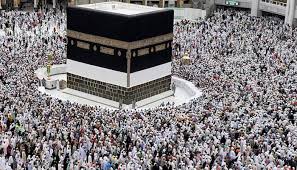The federal government has officially announced the Hajj Policy for 2025, introducing new guidelines and enhanced support for pilgrims. Approved by the federal cabinet under the leadership of Prime Minister Shehbaz Sharif, this policy outlines a balanced quota, special facilities, and new provisions aimed at streamlining the pilgrimage process for Pakistani citizens.
For the 2025 Hajj season, Pakistan’s quota stands at 179,210 pilgrims, split equally between government-run programs and private operators. Notably, children below the age of 12 are restricted from this year’s pilgrimage. Prospective pilgrims under the government scheme will be selected through a computerized ballot system. Additionally, the policy reserves 1,000 seats for hardship cases and 300 seats specifically for low-income workers registered under the Workers Welfare Fund and the Employees Old-Age Benefits Institution (EOBI).
Pilgrims departing from Islamabad and Karachi can benefit from the ‘Road to Makkah’ initiative, streamlining immigration and travel procedures. To further improve the pilgrimage experience, Hajj group organizers will sign service contracts with the Ministry of Religious Affairs to ensure service standards are met.
A new role of “Nazim” has been introduced to oversee pilgrim services, with one Nazim appointed for every 100 pilgrims. Selected from trained welfare staff, these Nazims will ensure smooth logistics and support throughout the journey. Additionally, compensation amounts for deceased or injured pilgrims have been raised, with families receiving between one to two million rupees in the unfortunate event of a loss.
The government has also developed a Hajj management application to assist pilgrims with essential information and training resources, underscoring a focus on technology and preparation.
Priority in the Hajj ballot will be granted to first-time pilgrims, and the cabinet emphasized that providing quality services to pilgrims remains a top priority in this year’s policy.


